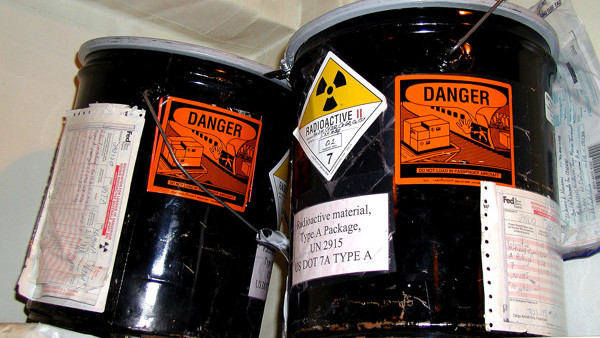10 Absolute Worst Ways To Die According To Science
2. Radiation

Despite what the movies may have told you, exposure to radiation is much more likely to result in a long, agonising death than superpowers.
The actual process that produces symptoms is the ability of ionizing radiation to rip apart atoms and molecules, making them highly unstable and reactive. This, understandably, is not very good for you.
The severity of your symptoms depends on the dose and the type of radiation. Small doses will bring about nausea, headaches, vomiting, fevers and rashes. Slightly higher doses will start to rip apart your cells, causing blood cells, white and red, to die.
This means a weakened immune system, haemophilia and anemia as your white blood cell, red blood cell and platelet counts plummet (those of you who paid attention in science class will notice that this is basically everything that makes blood, blood).
At extreme doses, the skin becomes red and blistered and begins to slough off, there is an increased risk of neurological damage, throwing tremors and seizures into the mix. The headaches and vomiting become debilitatingly intense and treatments such as blood and bone marrow transfusions will be ineffective. You will almost certainly die at these doses, and fast.
This is the case with short, intense bursts of radiation. However, long-term, low-level exposure massively increases the risk of cancers and the radiation will cause your DNA to physically mutate.